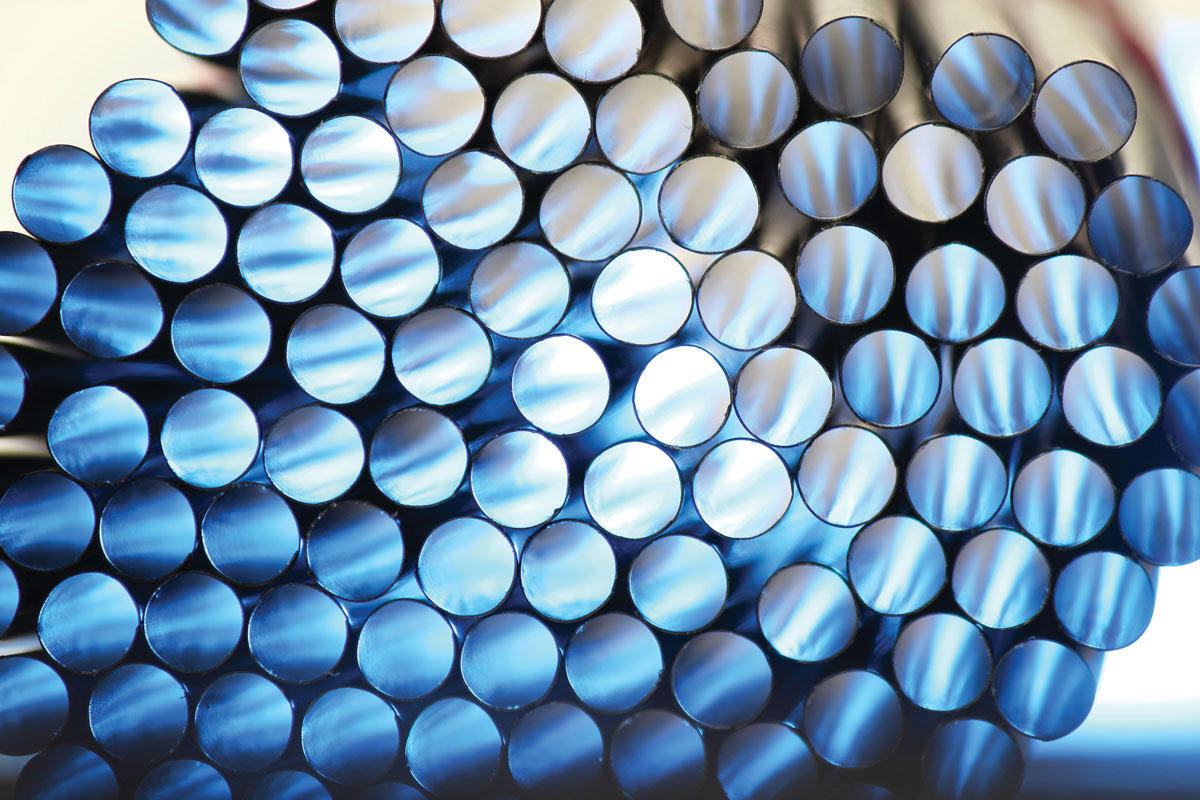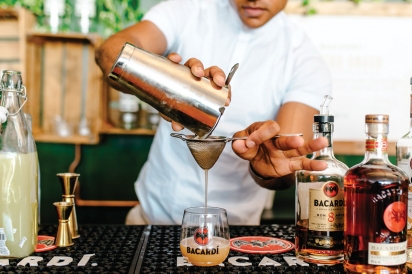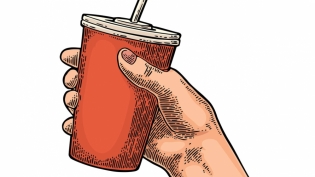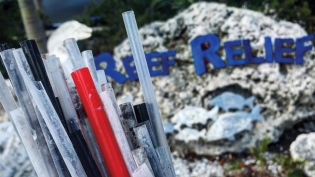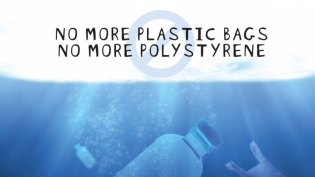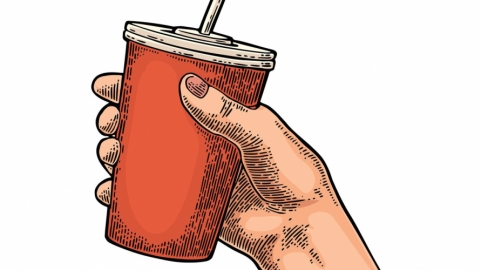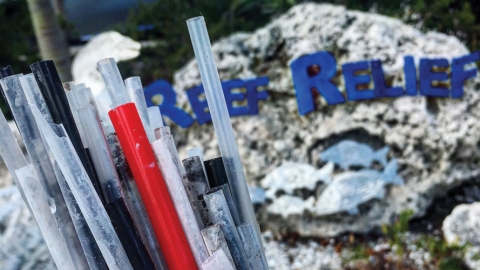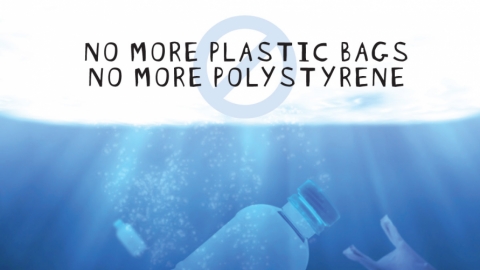The Last Straws
We really suck. The average American will use over 38,000 plastic straws in their lifetime. By 2050, there will be more pieces of plastic in the ocean than fish, according to Debris Free Oceans, a local nonprofit that educates about ocean pollution.
And some of the worst culprits are those sucky plastic straws.
“Those are the things that just wreak havoc throughout the ecosystem,” says Aabad Melwani, owner and president of Rickenbacker Marina on Virginia Key and co-founder of a movement called #MiamiIsNotPlastic. “They’re narrow, they’re hollow, they don’t degrade, they travel easily, they’re wind swept, they travel through water.”
Most straws are made of a low-grade plastic that is not recyclable in Miami-Dade, Broward and Monroe counties. The U.S. and other countries have been sending about half of their recycled plastics to China for processing. But China announced earlier this year that it would no longer buy a host of wastes, including contaminated plastics, from other countries. This means lower-grade plastics have little to no value in recycling.
War on Straws
Melwani teamed up with Pallava Goenka, regional managing director of Specialty Restaurants Corporation (SRC), which operates the Rusty Pelican and Whiskey Joe’s Bar & Grill, to launch #MiamiIsNotPlastic and tackle the problem of single-use plastic products, including go-to utensils, kids’ cups, coffee pods, plastic bags and straws. “We were using 300,000 straws in one restaurant in a year,” says Pallava, who simply stopped using them at the Rusty Pelican. “We will not serve plastic straws, period. It’s a wasteful habit.” The customer response? “No one noticed.” Paper straws are available on request.
To get participation from restaurants and businesses, #MiamiIsNotPlastic went to local vendors to put together biodegradable alternatives to plastic straws and single-use plastic or Styrofoam containers, bags, utensils and tableware. Businesses can sign up to become a member and get special prices on alternative products.
#MiamiIsNotPlastic hosted its first event on Jan. 10, attracting hundreds of participants and supporters, including Surfrider Foundation, Marjory Stoneman Douglas Biscayne Nature Center, Miami Waterkeeper and VolunteerCleanUp.org.
Since then, the war on straws has been heating up globally. Taiwan’s Environmental Protection Administration announced a plan to phase out plastic straws. The European Union wants member states to ban straws by 2030. In Florida, plastic straw bans went into effect in Marco Island in March and in Fort Myers Beach in February.
No Time to Waste
“There is a visible sense of urgency,” says Anastasia Mikhalochkina, founder of Lean Orb, a Miami-based company that produces plant-based alternatives to plastics and one of #MiamiIsNotPlastic’s partners. “People begin to understand that perhaps recycling is no longer our ultimate solution and we should be investing in biodegradable materials versus plastic.”
Unlike some products that claim to be compostable, but require processing at an industrial facility to actually break down, all of Lean Orb’s products degrade naturally in the earth or in the ocean. Lean Orb is working on two lines of straws that will break down completely in the environment, one made of sugarcane and one from recycled craft paper.
Sales representatives for Imperial Dade, a major distributor of foodservice disposables, work with individual restaurants and other customers to find sustainable products that meet their needs, are cost neutral and cut through the confusion of “green-washed” products – those that claim sustainability for marketing, but don’t meet environmental standards.
“There is a lot of smoke and a lot of mirrors when it comes to people telling customers or really distributors or manufacturers telling customers what they should do,” says Andrew Paton, director of national accounts for Imperial Dade. “So we created this Green Safe program, and Green Safe identifies items that are recyclable, reusable, compostable.”
Cocktail Straws and Stirrers
Bacardi doesn’t think your Cuba Libre – or any other cocktail, for that matter – needs a plastic straw or stirrer. The 156-year-old company phased out straws and stirrers from internal operations in 2016, eliminating one million plastic straws and stirrers in one year, says Bacardi’s director of global corporate communications, Jessica Merz.
Bacardi hosts major cocktail competitions and competing mixologists go through training with the company’s advocacy team. “They go and present their fabulous cocktail and they’re telling their story and they’re mixing it. Obviously drinks do need a little assistance, right? So they’ll put in a metal straw and they’ll say ‘it’s metal, it’s not plastic,’” Merz says. The company has also partnered with #MiamiIsNotPlastic.
Consumer Support
Eco-minded local officials, including commissioners Ken Russell from the city of Miami, Vince Lago of Coral Gables, Key Biscayne mayor Mayra Pena Lindsay, were on hand at the event, inviting buy-in from individuals and businesses.
“These speakers are here basically to tell you that, ‘Look, it doesn’t start with government regulating you into these behaviors.’ It starts with you at home and it starts with the private sector basically saying, ‘Hey, I want to take the initiative to eliminate use of single-use plastics,’” Melwani says.
South Florida still has work to do. “Do we have the right tools? Absolutely. Should there be more companies decoding the problem of plastic waste? 100 percent,” Mikhalochkina says. “Monopoly is bad for the economy, so I want to see more initiative on the market, more startups trying to innovate and solve the crisis of plastic pollution.”
For consumers, it’s a matter of supporting and seeking out restaurants that use alternative products, and letting those restaurants and bars that still use plastic that it’s time for a change.
And it starts with saying “no plastic straw, please” when ordering drinks. It’s a simple request that will start making sure that #MiamiIsNotPlastic.


